Fresh destruction for palm oil underway now inside nationally protected wildlife reserve
Rainforest Action Network (RAN) is ringing the alarm once again that the crisis of illegal rainforest destruction for palm oil development inside Indonesia’s nationally protected Rawa Singkil Wildlife Reserve is ongoing and escalating – and that major global brands remain complicit. As revealed in RAN’s 2022 exposé The Carbon Bomb Scandals: Big Brands Driving Climate Disaster for Palm Oil, this deforestation crisis involves the construction of illegal canals designed to drain wet, primary peat swamp rainforests within a region of the Leuser Ecosystem long known as the ‘orangutan capital of the world.’ The biologically rich area is home to many species of wildlife at risk of imminent extinction, including the most dense populations of critically endangered Sumatran orangutans known to still exist anywhere.
Fresh evidence shows that globally important peatforests continue to be bulldozed, and new canals drained, and that, in fact, the rate of destruction is greater than has been seen in the past decade of RAN’s monitoring of palm oil expansion inside the world-renowned region. Satellite imagery from Nusantara Atlas shows a new deforestation front – this time in the north east of the protected area in Aceh. The time lapse imagery below shows canal development since June 2023 and the clearing of peatforests in October 2023.
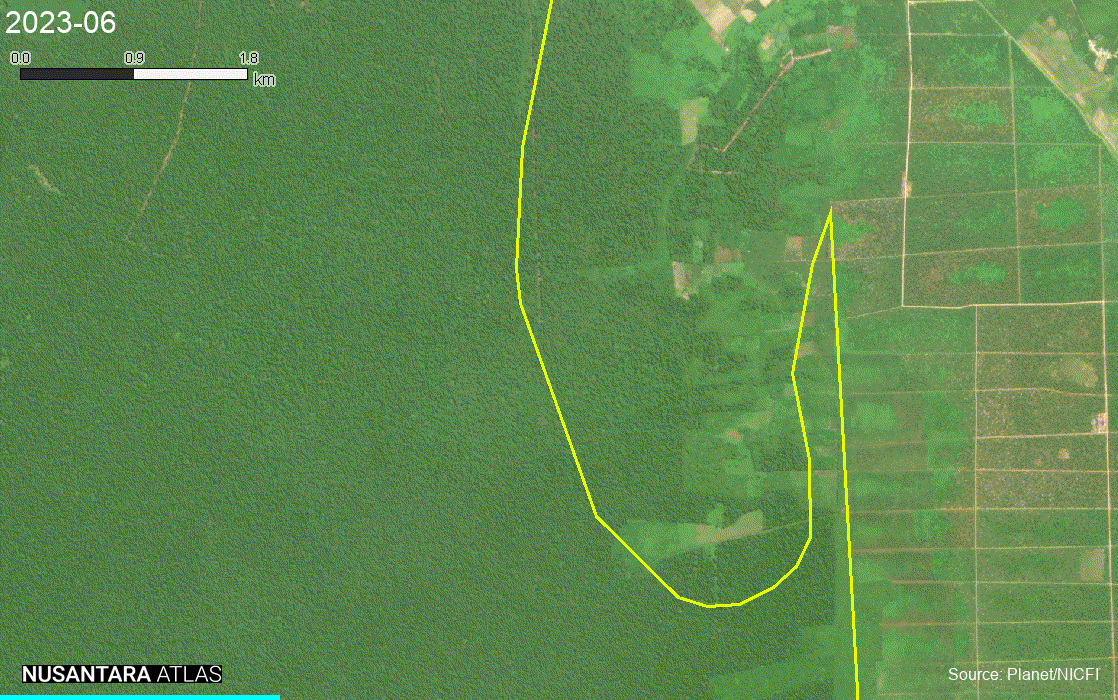
Time lapse imagery captured from Nusantara Atlas shows new canal development since June 2023 and the clearing of peatforests in October inside the north-east boundary of the Rawa Singkil Wildlife Reserve.
This destruction is happening on the eve of the Roundtable on Sustainable Palm Oil meeting that is being held in Jakarta in late November. It is further evidence of the palm oil sectors failure to stop driving deforestation inside the Leuser Ecosystem and the failure of major brands like Nestlé, Procter and Gamble, Mondelēz and Colgate-Palmolive to implement their commitments to end deforestation and new development on carbon rich peatlands in their supply chains.
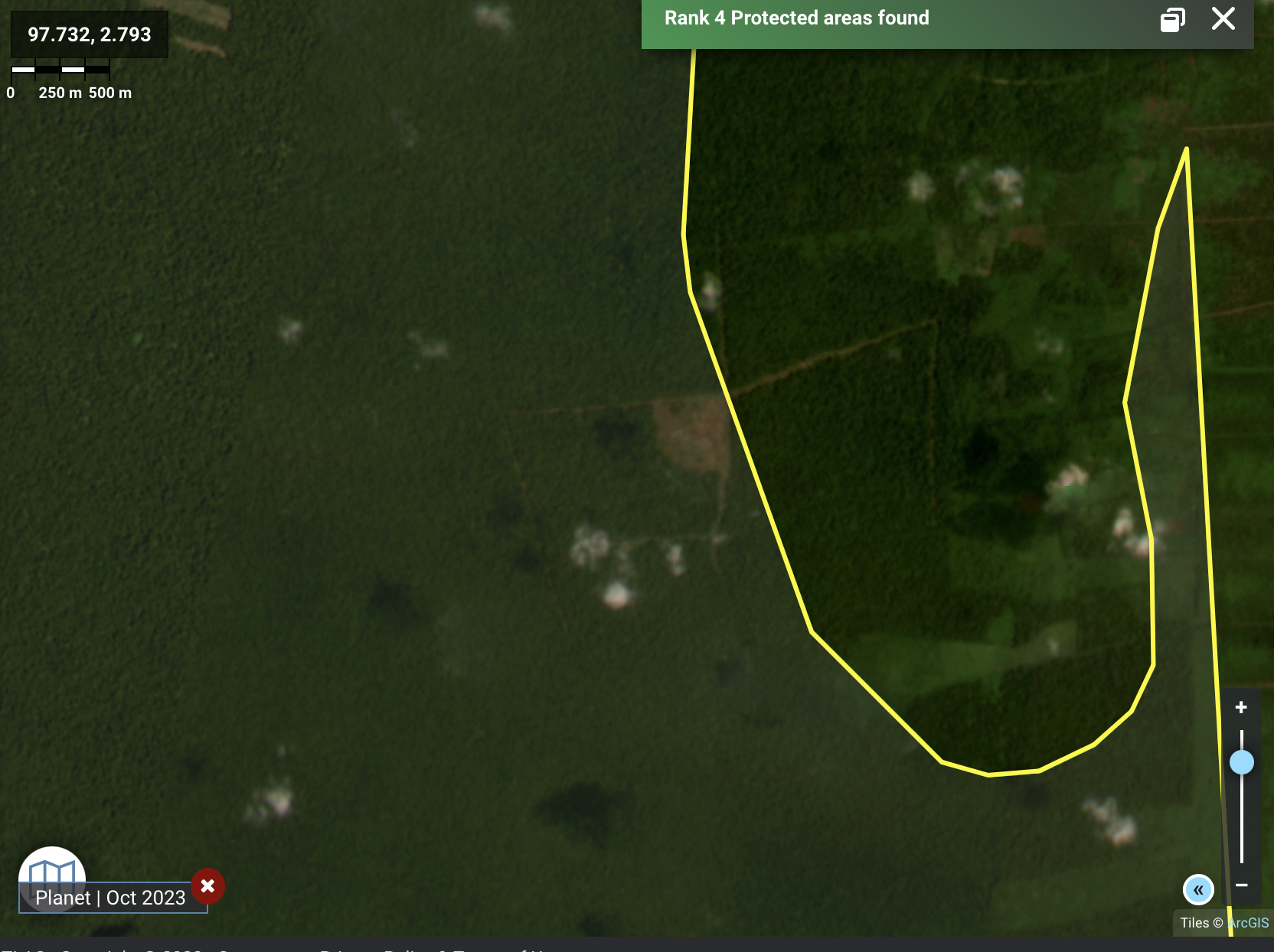
Planet satellite data shows new canal development since June 2023 and the clearing of peatforests in October inside the north-east boundary of the Rawa Singkil Wildlife Reserve. GPS Coordinates: 97. 732 2.793 Source: Nusantara Atlas. TheTreeMap.
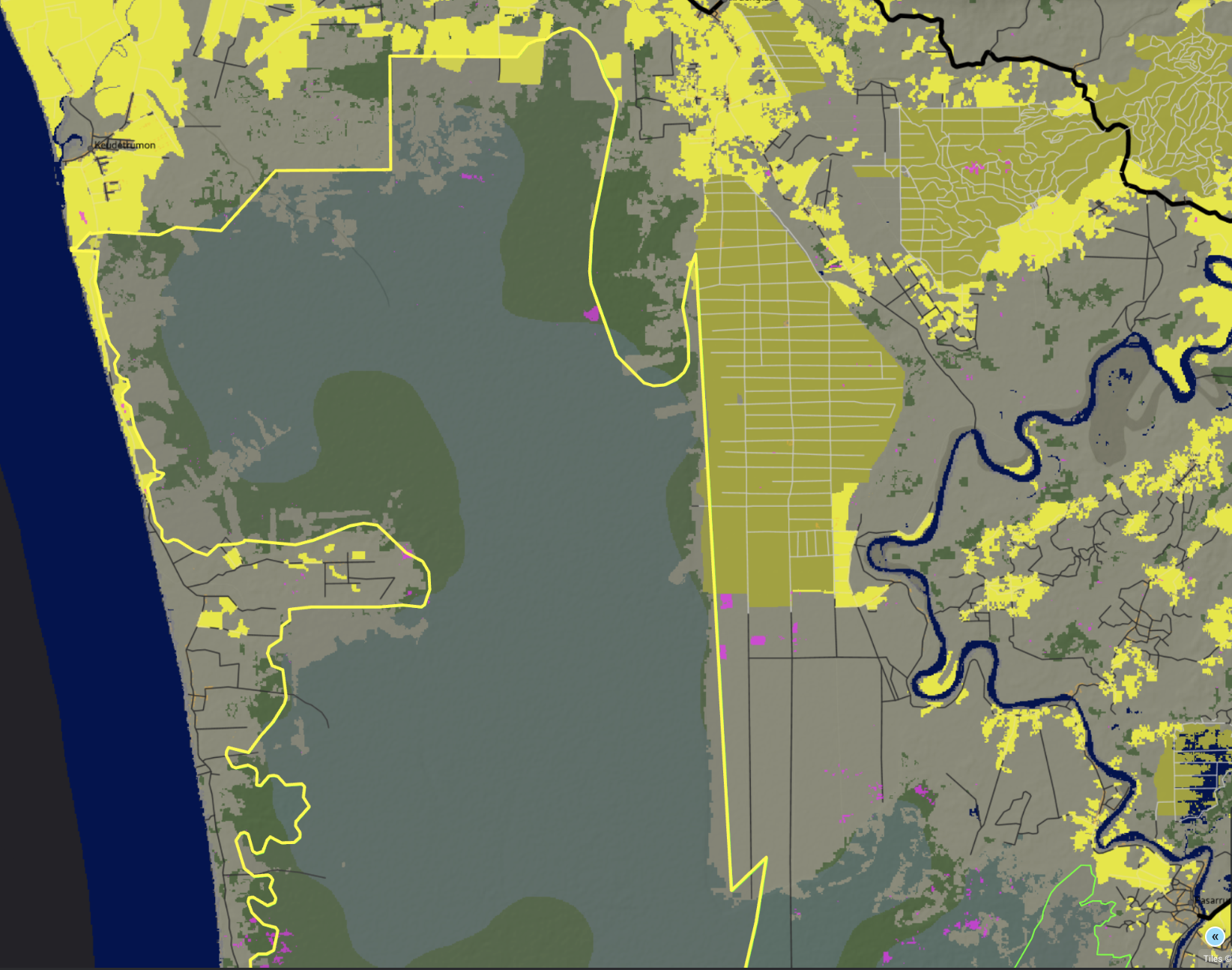
Deforestation shown in pink dot within the Rawa Singkil Wildlife Reserve in the last 30 days. Significant clearing of peatforests is occurring at the end of a new canal to the west of the palm oil plantation of PT. Agro Sinergi Nusantara GPS Coordinates: 97. 732 2.793 Source: Nusantara Atlas. TheTreeMap.
To put it plainly, the ‘Carbon Bomb Scandals’ crisis is worsening. The forests discussed here are among the highest priority landscapes for conservation in the world and it is hard to overstate the stakes involved with this rate of destruction occurring in an area that is legally protected as a Wildlife Reserve. With so much lowland primary rainforest already destroyed, and so little intact habitat of this quality remaining inside the reserve and surrounding lowlands of the Singkil-Bengkung region, it is not an exaggeration to say that the continued existence of iconic species like the orangutan, elephant, rhino and tiger depend upon saving all of what remains. Major brands and their suppliers like Royal Golden Eagle Group, Golden Agri Resources, Wilmar and Musim Mas need to do more to stop palm oil expansion into the Rawa Singkil Wildlife Reserve. There is no time to waste.
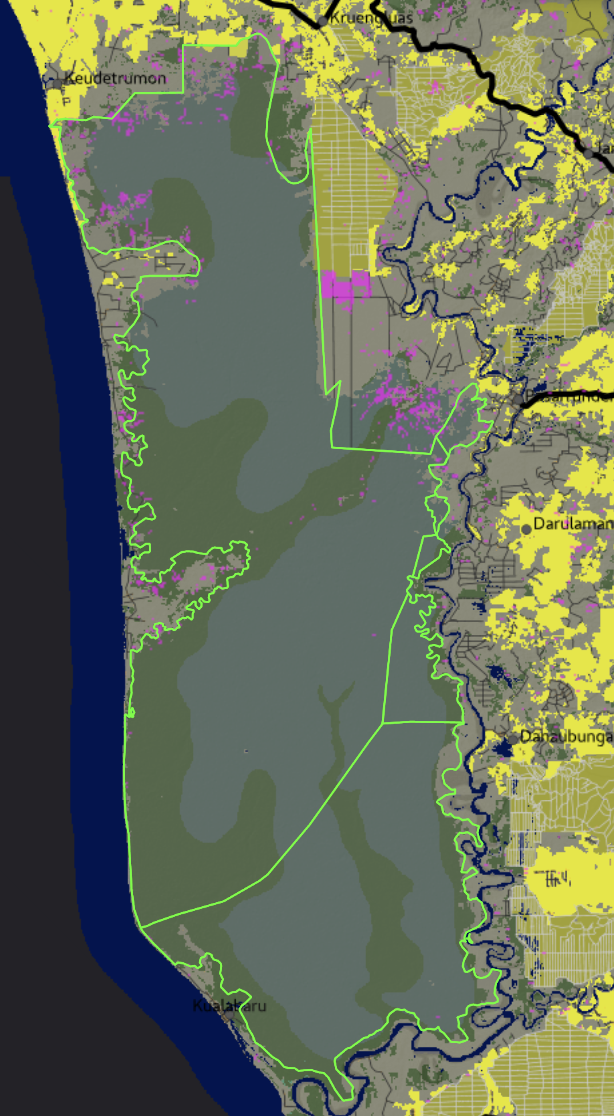
Deforestation within the Rawa Singkil Wildlife Reserve has been on the rise during the last 360 days (shown in pink dots). A majority of deforestation is inside the reserve in the district of Aceh Selatan. Source: Nusantara Atlas. TheTreeMap.
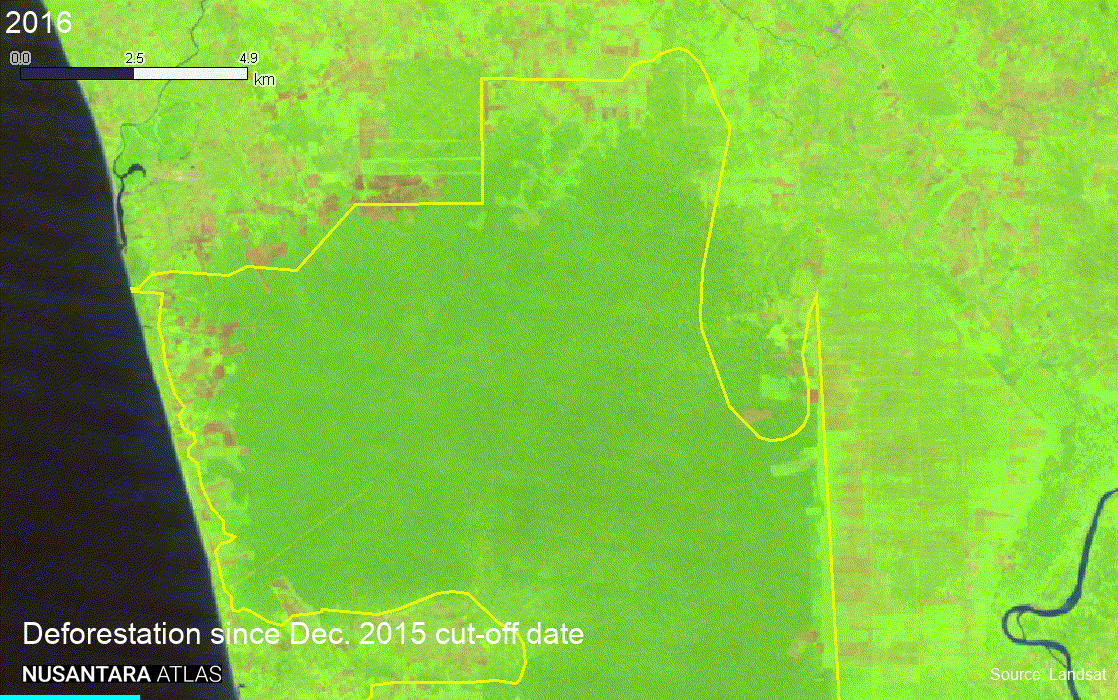
Deforestation has persisted inside the Rawa Singkil Wildlife Reserve since the deforestation cut-off date of December 2015 which is in major brands No Deforestation, No Peatland and No Exploitation Policies. Source: Nusantara Atlas. TheTreeMap.












